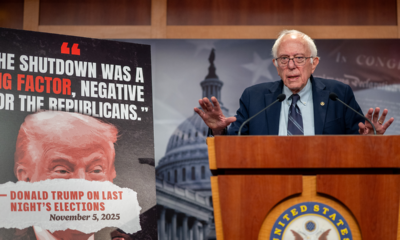AP
—
Bones and skulls visible in the back seat of a car near an abandoned cemetery on Philadelphia’s outskirts led police to a basement filled with body parts, which authorities say were hoarded by a man now accused of stealing about 100 sets of human remains.
Officers say a Tuesday night arrest culminated a monthslong investigation into break-ins at Mount Moriah Cemetery, where at least 26 mausoleums and vaults had been forced open since early November.
Investigators later searched the Ephrata home and storage unit of Jonathan Christ Gerlach, 34, and reported finding more than 100 human skulls, long bones, mummified hands and feet, two decomposing torsos and other skeletal items.
“They were in various states. Some of them were hanging, as it were. Some of them were pieced together, some were just skulls on a shelf,” Delaware County District Attorney Tanner Rouse said.
Most were in the basement, authorities said, and they also recovered jewelry believed to be linked to the graves. In one case, a pacemaker was still attached.
Police say Gerlach targeted mausoleums and underground vaults at the 1855 cemetery. It’s considered the country’s largest abandoned burial ground, according to Friends of Mount Moriah Cemetery, which helps maintain the 160-acre landmark in Yeadon that’s home to an estimated 150,000 grave sites.
Police had been looking into the string of burglaries when an investigator checked Gerlach’s vehicle plates and found he had been near Yeadon repeatedly during the period when the burglaries occurred. Police say the break-ins centered on sealed vaults and mausoleums containing older burials, which had been smashed open or had stonework damaged to reach the remains inside.
He was arrested as he walked back toward his car with a crowbar, police said, and a burlap bag in which officers found the mummified remains of two small children, three skulls and other bones.
Gerlach told investigators he took about 30 sets of human remains and showed them the graves he stole from, police said.
“Given the enormity of what we are looking at and the sheer, utter lack of reasonable explanation, it’s difficult to say right now, at this juncture, exactly what took place. We’re trying to figure it out,” Rouse told reporters.
Gerlach was charged with 100 counts each of abuse of a corpse and receiving stolen property, along with multiple counts of desecrating a public monument, desecrating a venerated object, desecrating a historic burial place, burglary, trespassing and theft.
He is jailed on $1 million bond. No lawyer was listed in court records. A message seeking comment was texted to a cellphone linked to him.












































